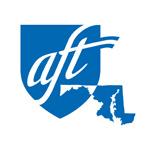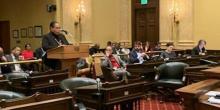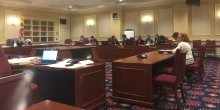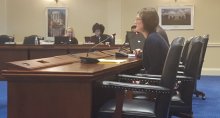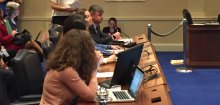
AFT-Maryland continues to work to ensure that our members and the students they serve have the opportunity to work and learn in a safe and healthy environment. This session, AFT-Maryland has been supporting our members of BTU and CUB by working with state Sen. Cory McCray to pass the Safe Schools Drinking Water Act. This legislation would guard against elevated levels of lead in school drinking water. This law would ensure that any outlet in a public or non-public school that’s used for drinking water, cooking, or cleaning does not have elevated lead level. The standard established by the

